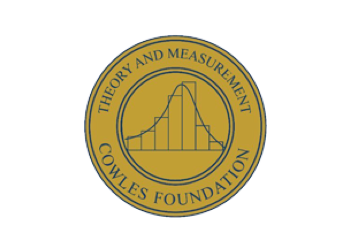| Presenter(s) | Type | Length | Chair | Room Number | Add to calendar | ||
|---|---|---|---|---|---|---|---|
| Whitney Newey | Keynote Address | 31/08 | 16:30 CEST |
75
mins |
Ivan Fernandez-Val
|
Auditori
|
Add to Calendar
2023-08-31 16:30:00
2024-12-23 11:56:41
EEA-ESEM 2023: Fisher-Schultz Lecture. Room: Auditori
Panel data provides the opportunity to control for endogeneity of regressors while estimating structural and causal effects via time stationarity (i.e. "fixed effects"). Sources of endogeneity can include market equilibrium, individual choices, and potential outcomes in causal models. We estimate structural and causal average effects using a linear approximation to a general nonlinear, nonseparable model. We estimate individual specific ridge regression approximations and corresponding debiased average effects that allow for partial identification. The resulting estimators and standard errors are simple to compute and have empirical Bayes interpretations. We consider large T approximation where the identified set is small enough that partial identification can be ignored. We also give ways of evaluating the extent of partial identification in applications. Empirical examples are given for economic demand analysis, estimating the average of heterogeneous taxable income elasticities with nonlinear budget sets, and estimating causal effects.
Panel data provides the opportunity to control for endogeneity of regressors while estimating structural and causal effects via time stationarity (i.e. "fixed effects"). Sources of endogeneity can include market equilibrium, individual choices, and potential outcomes in causal models. We estimate structural and causal average effects using a linear approximation to a general nonlinear, nonseparable model. We estimate individual specific ridge regression approximations and corresponding debiased average effects that allow for partial identification. The resulting estimators and standard errors are simple to compute and have empirical Bayes interpretations. We consider large T approximation where the identified set is small enough that partial identification can be ignored. We also give ways of evaluating the extent of partial identification in applications. Empirical examples are given for economic demand analysis, estimating the average of heterogeneous taxable income elasticities with nonlinear budget sets, and estimating causal effects.
EEA-ESEM 2023
congress@eeassoc.org
Europe/Rome
public
|
Panel data provides the opportunity to control for endogeneity of regressors while estimating structural and causal effects via time stationarity (i.e. "fixed effects"). Sources of endogeneity can include market equilibrium, individual choices, and potential outcomes in causal models. We estimate structural and causal average effects using a linear approximation to a general nonlinear, nonseparable model. We estimate individual specific ridge regression approximations and corresponding debiased average effects that allow for partial identification. The resulting estimators and standard errors are simple to compute and have empirical Bayes interpretations. We consider large T approximation where the identified set is small enough that partial identification can be ignored. We also give ways of evaluating the extent of partial identification in applications. Empirical examples are given for economic demand analysis, estimating the average of heterogeneous taxable income elasticities with nonlinear budget sets, and estimating causal effects.








